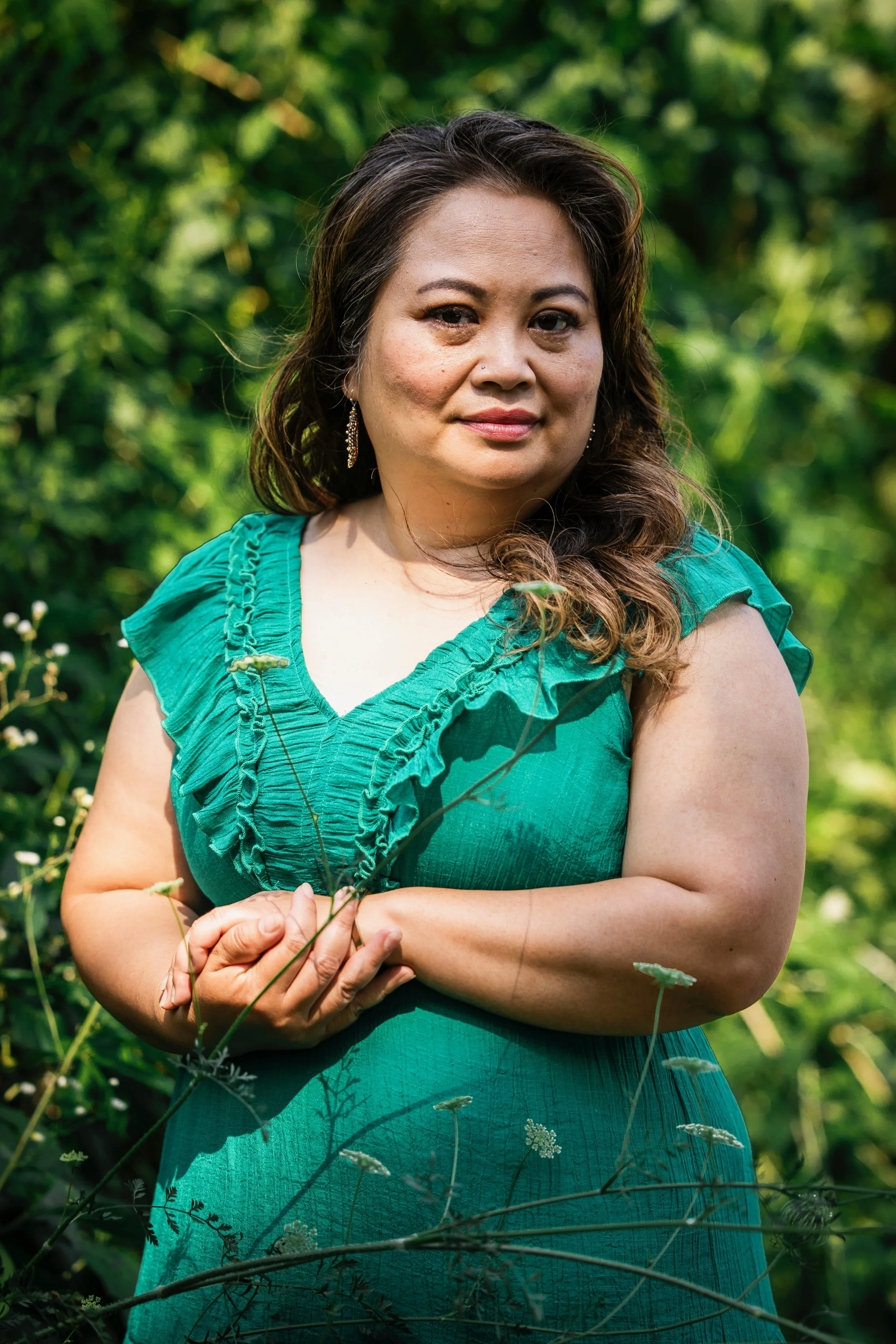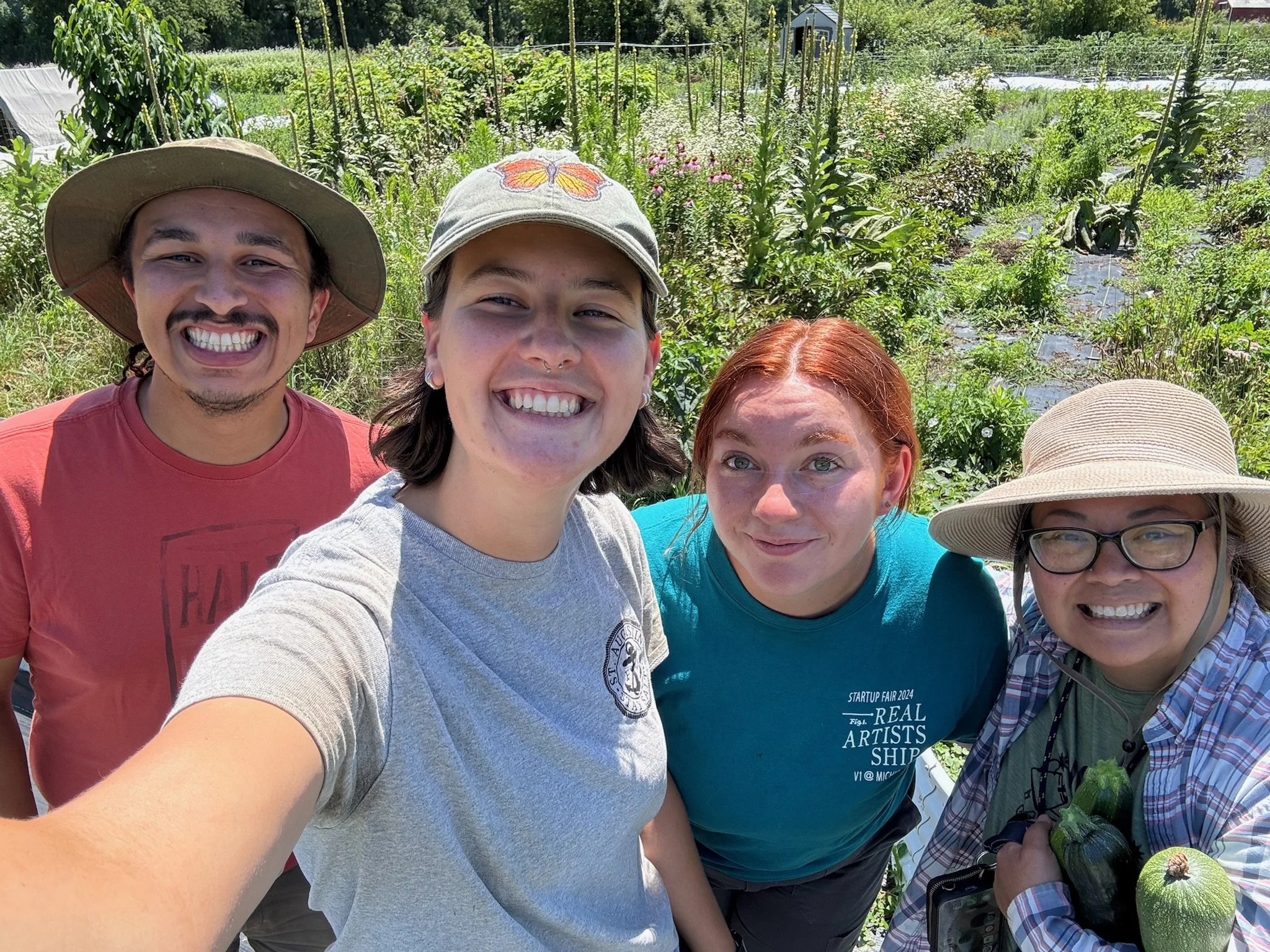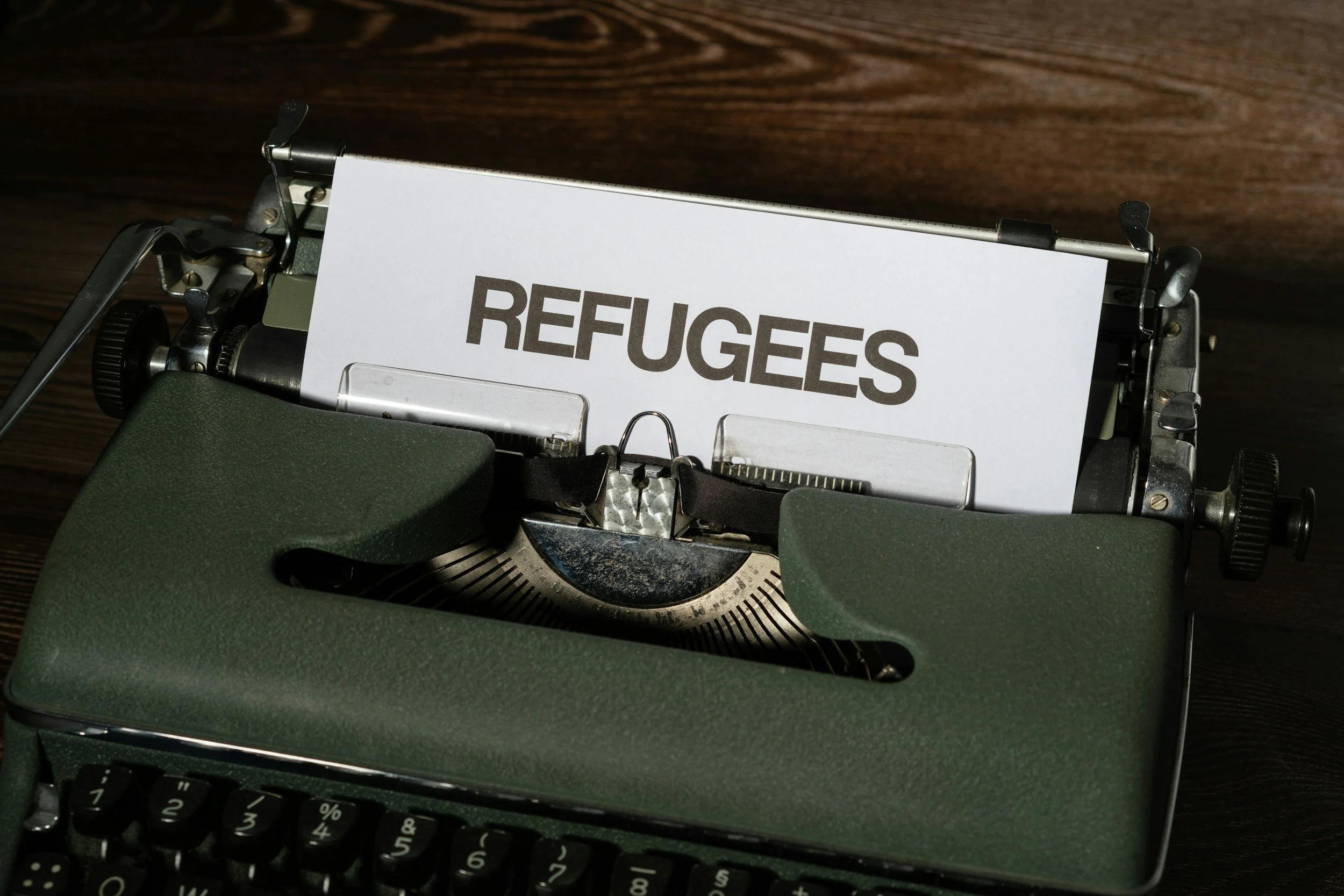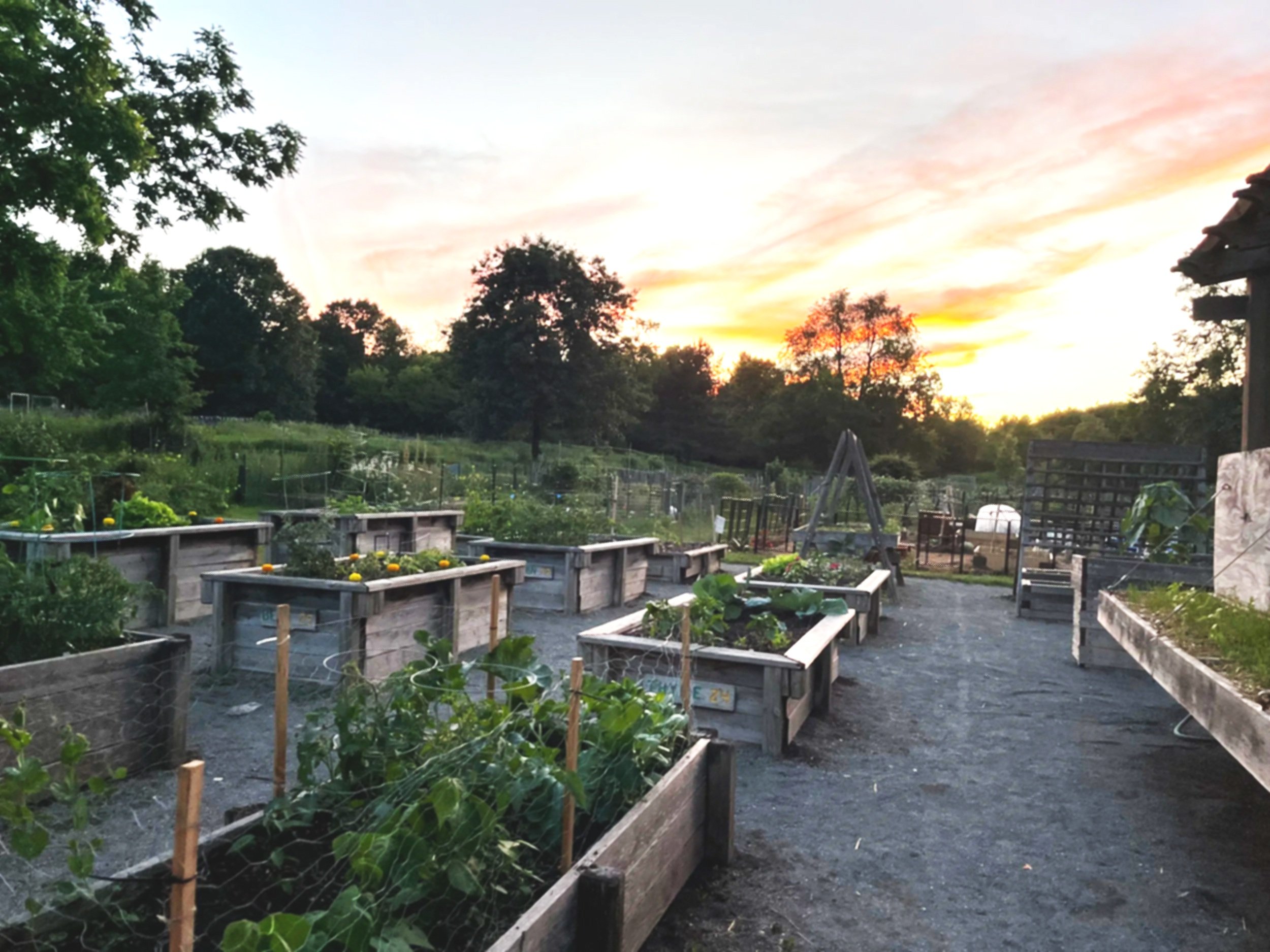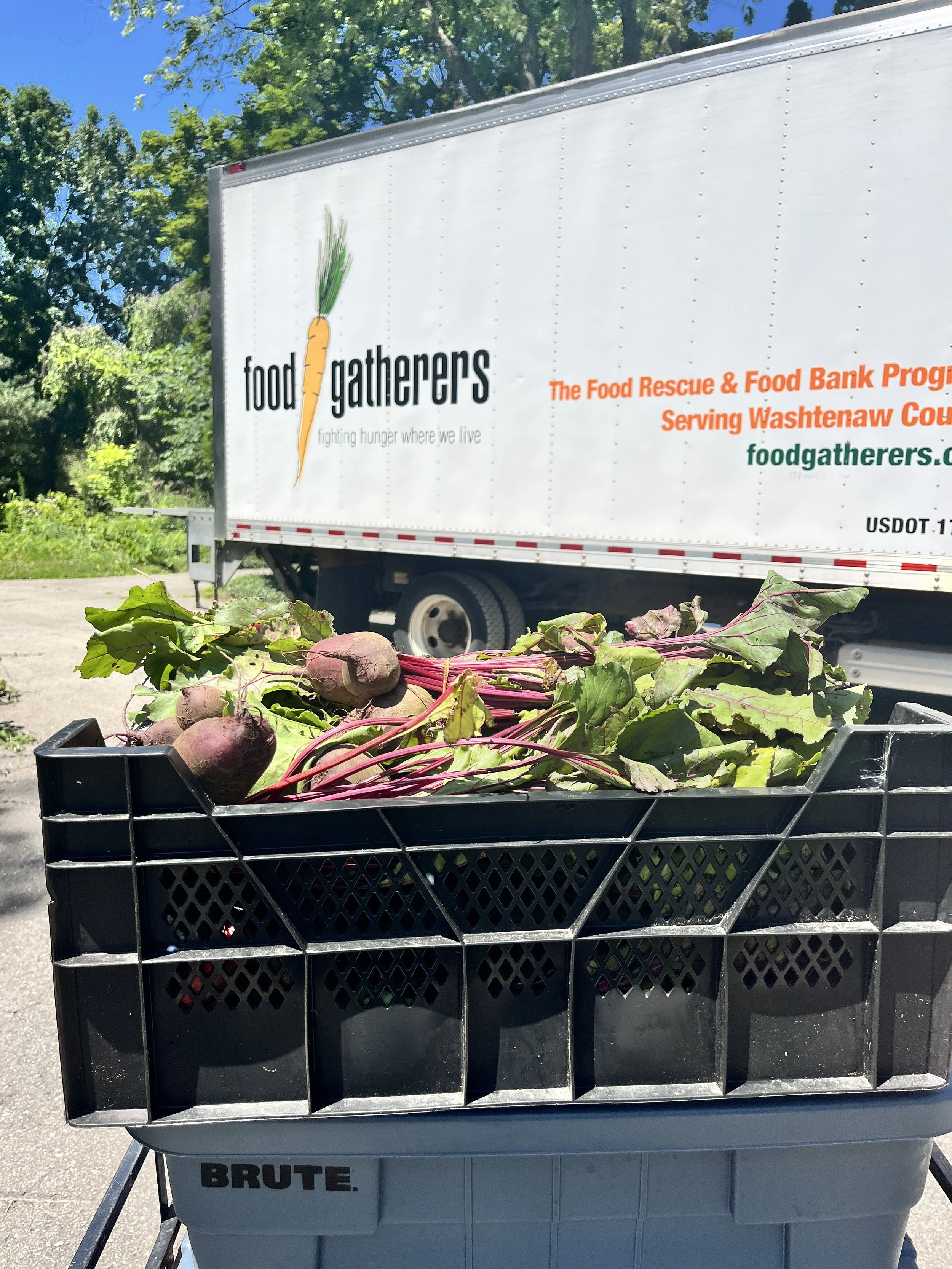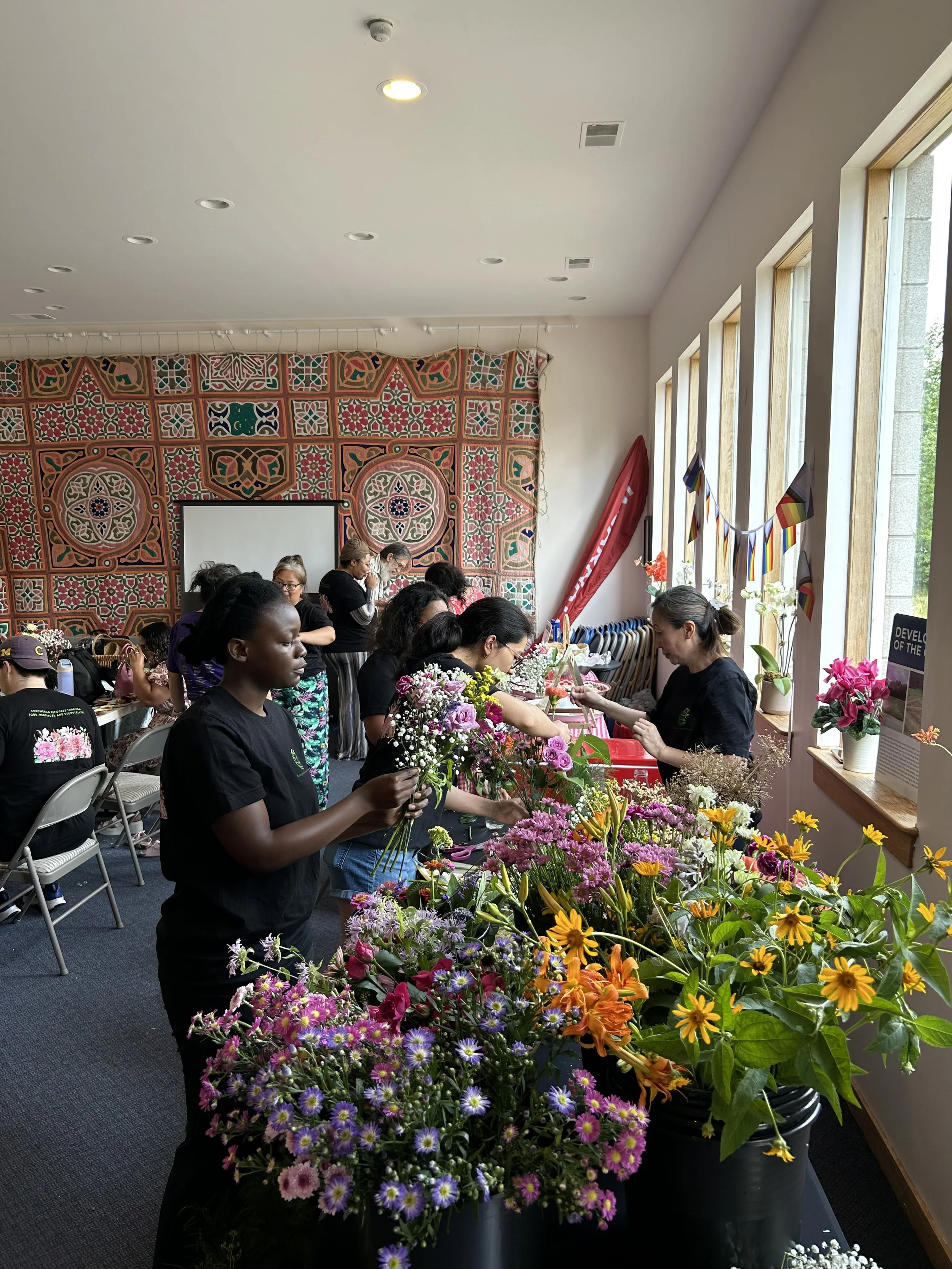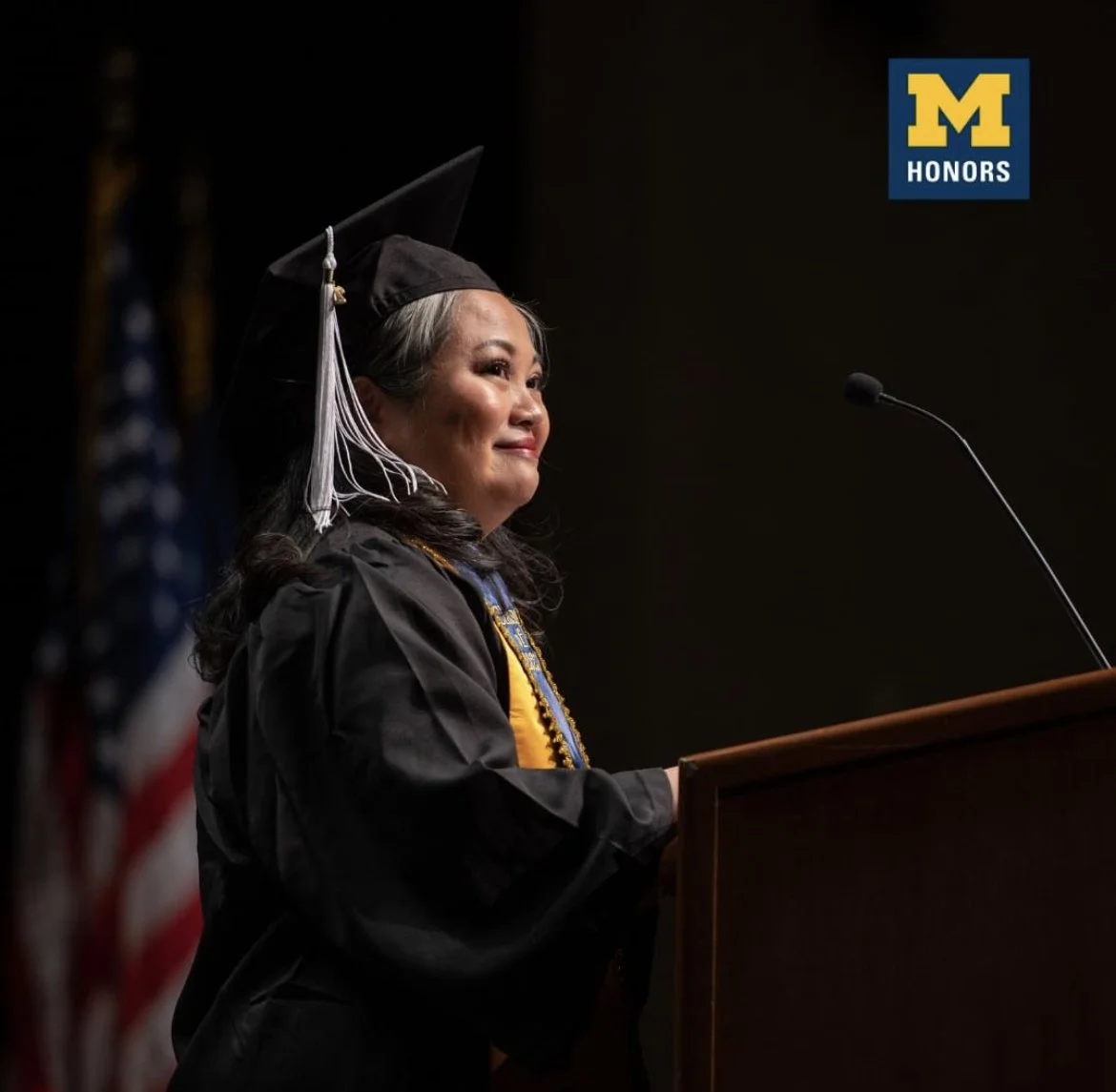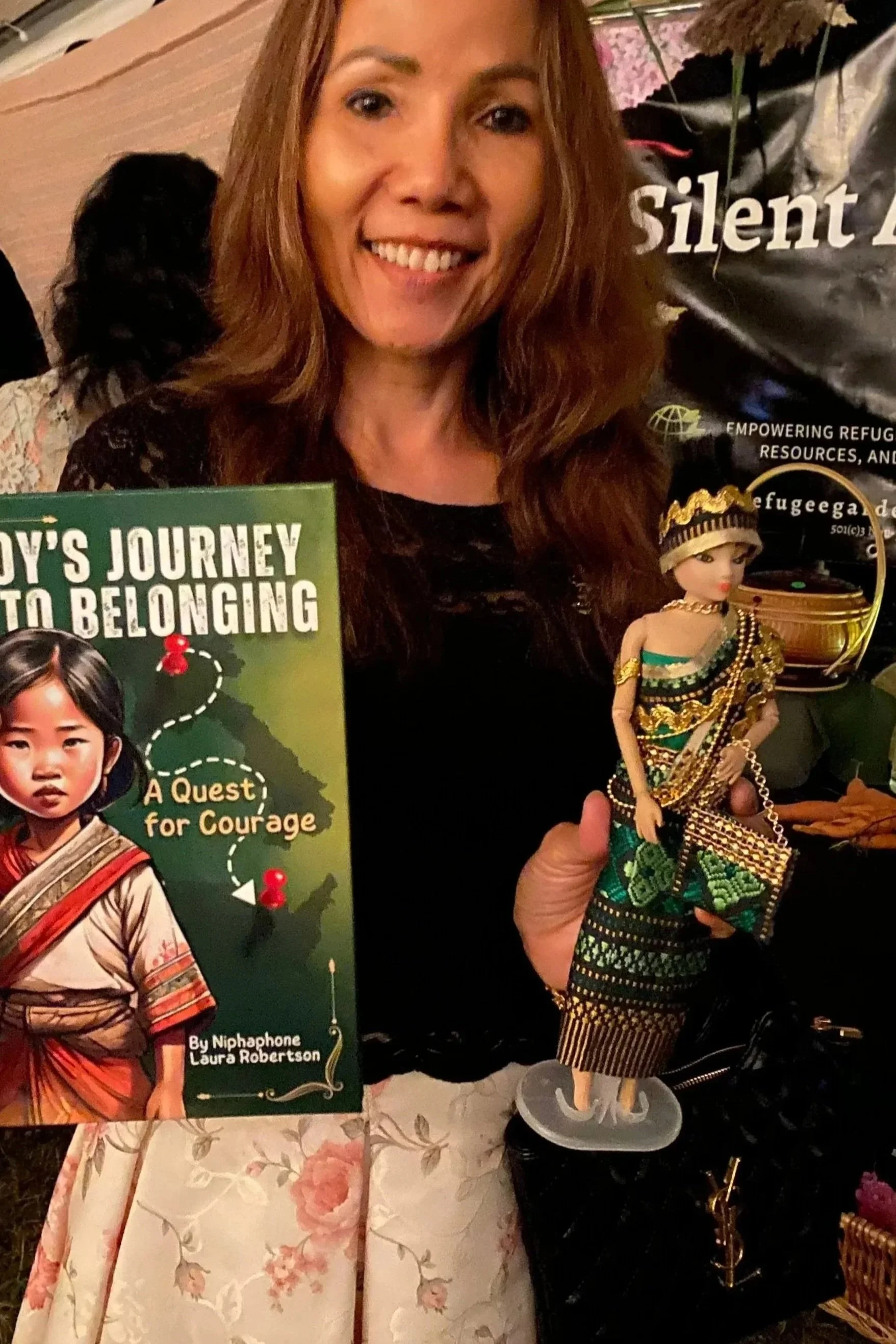
LAND ACKNOWLEDGMENT

Photography by Sarah Boeke
At RGI, this moment reflects who we are. Women farmers include myself and the refugee women who grow, harvest, and share food through our programs. Many come from agrarian cultures where food is deeply tied to identity, memory, and care. Through farming and gardening, they reconnect with knowledge carried across borders and generations.
Refugees are often misunderstood. They are not defined by crisis alone—they were everyday citizens of their countries: parents, farmers, educators, business owners, and caretakers of their communities. Many were forced to flee due to persecution, violence, or war, often shaped by broader geopolitical forces and conflicts beyond their control. Leaving home is not a choice made lightly; it is an act of survival. Recognizing this truth is essential to creating spaces of dignity, compassion, and healing.
We also want to acknowledge the immigrant and refugee members of our community who are navigating fear and uncertainty during this time. For those who have already survived war, persecution, and displacement, this moment can reopen deep trauma. At RGI, we see you. You are not invisible. You deserve safety, rest, and peace, and our work remains grounded in creating spaces of healing, dignity, and care.
These values guide our Healing Garden—a space created not only to grow food, but to slow down, to breathe, and to restore a sense of belonging. Healing requires safety, community, and time, and the land offers a powerful place for that work to unfold.
To continue this work, we rely on community. Volunteers play a vital role in helping us care for the garden, support educational programming, and maintain this space of healing and nourishment. We also depend on sponsorships and ongoing donations to sustain our programs—especially at a time when food systems feel increasingly uncertain and public funding for social programs has been reduced or eliminated.
As we honor the International Year of the Woman Farmer, may we continue to choose compassion, protect spaces of healing, and grow peace—together.
In solidarity,
Phimmasone Kym Owens
Founder & Executive Director
Refugee Garden Initiatives
Mission Statement: Empowering Refugees Through Food, Resources, and Storytelling
Supporting Local BIPOC Businesses and Female Farmers
What Is A Refugee?
According to the United Nations, a refugee is a person who has fled their country of origin and is outside its borders due to a '“well-founded fear of persecution" for reasons of race, religion, nationality, political opinion, or membership in a particular social group.
Refugees Working At The Freedom Garden In 2022
Healing and Sensory Garden 2025
Who We Are
Refugee Garden Initiatives is an independent 501(c)3 nonprofit. RGI emerged in 2021, sparked by a profound question during Phimmasone Kym Owens' Social Work course: "How can you be an agent of change?" Rooted in her love for gardening and her own refugee background, Phimmasone founded RGI. The pivotal lessons learned during our 2022 prototype garden, primarily from single refugee mothers, led us to focus on this underserved and underrepresented population. However, RGI’s mission is not limited to single refugee mothers; it extends to all refugees and anyone with a lived refugee experience.
Freedom II Garden 2024
Community Outreach
Youth educators at the first annual 2025 Lao Arts and Culture Camp of Michigan founded by Laotian American Community of Michigan (LACM)
RGI donated fresh produce to the youth camp—sharing the harvest with the next generation and reinforcing the importance of healthy food and community care.”
$23+ Billion
in immigrant spending power in Michigan
“Immigration has been the single biggest driver of population growth in Michigan for more than 30 years.”
Research shows that immigrants in Michigan have contributed tens of billions of dollars in economic activity, helped fuel population growth, and filled critical roles in the workforce—strengthening the state’s shared prosperity.
Source: Global Detroit; American Immigration Council.
A Holistic Approach To Thrive
At RGI, we believe in a holistic approach to empower refugees, ensuring they thrive, not just survive:
Food Security
At RGI, we cultivate culturally diverse gardens that provide fresh, nourishing produce while honoring ancestral farming traditions. For refugees, food is more than sustenance—it is identity and health. Our bodies are genetically adapted over generations to thrive on the foods of our cultures, just as some people have allergies to certain foods. For example, many Southeast Asians cannot easily digest dairy because it has never been a staple in their diets. Refugees deserve access to the foods that support their health, not pressure to assimilate into processed foods often provided in the U.S. We aim to change the narrative that refugees should be grateful for any “free food,” instead advocating for culturally appropriate foods as a vital part of food security and dignity.
Trauma-Informed Care
We recognize the deep impact of displacement and war on refugee communities and advocate for trauma-informed care that is culturally responsive. Healing cannot be one-size-fits-all. Just as doctors must know a patient’s health history to prescribe the best treatment, therapists and care providers must consider a refugee’s cultural background to provide effective, respectful support. What is considered appropriate care in one culture may be harmful or ineffective in another. Our programs integrate this understanding into wellness practices—such as gardening therapy, yoga, and floral workshops—creating safe spaces where participants can heal and reconnect.
Education
At RGI, we know the poverty rate is disproportionately high for women and BIPOC communities due to systemic barriers. Refugees face these same barriers alongside the trauma of displacement, limited resources, and language obstacles. It is not enough to simply survive after fleeing a war-torn country—refugees need resources and education to thrive. That’s why we provide English as a Second Language (ESL), financial literacy, and life/work skills programs designed to uplift community members from poverty. For refugees, this education restores dignity that was lost in displacement, equipping them with tools for independence and long-term stability.
Amplifying Voices
Representation matters. RGI was founded by a refugee for refugees, creating a platform where lived experiences are not only shared but drive meaningful change. Too often, refugees are talked about rather than listened to. Through storytelling, advocacy, and leadership opportunities, we ensure that refugee voices are heard, respected, and positioned to influence systems, policies, and perceptions. Refugees are the best representatives of their own stories, and at RGI, we make sure those stories carry weight and lead to action.
Message From The Director
Happy New Year from Refugee Garden Initiatives. As we step into 2026, we extend wishes for peace, healing, and renewed hope to our community and to the world.
This year holds special significance: 2026 has been named the International Year of the Woman Farmer by the Food and Agriculture Organization of the United Nations. This global recognition honors the essential role women play in growing food, sustaining families, preserving culture, and strengthening food systems—often while facing barriers to land, resources, and recognition.
Board of Directors
-

Dr. Suchiraphon (Su) McKeithen-Polish
PRESIDENT, BOARD OF DIRECTORS
Dr. Suchiraphon (Su) McKeithen-Polish was born and raised in Thailand and lived in various countries due to her father's diplomatic career. She is a highly accomplished and influential figure in the field of bilingual education and community leadership. With a wealth of experience and expertise, she currently serves as a Bilingual Education Program/Title III Consultant at Macomb ISD and is an active member of the Michigan Department of Education (MDE) EL Advisory Committee, EL Statewide Network, and the National Association of Bilingual Education. Additionally, she holds the esteemed position of Commissioner of the Michigan Asian Pacific American Affairs Commission (MAPAAC) and serves as the President of the Council of Asian Pacific Americans (CAPA).
Dr. Su is also a devoted spouse and parent to three accomplished daughters, each flourishing in their respective fields of study and work.
-
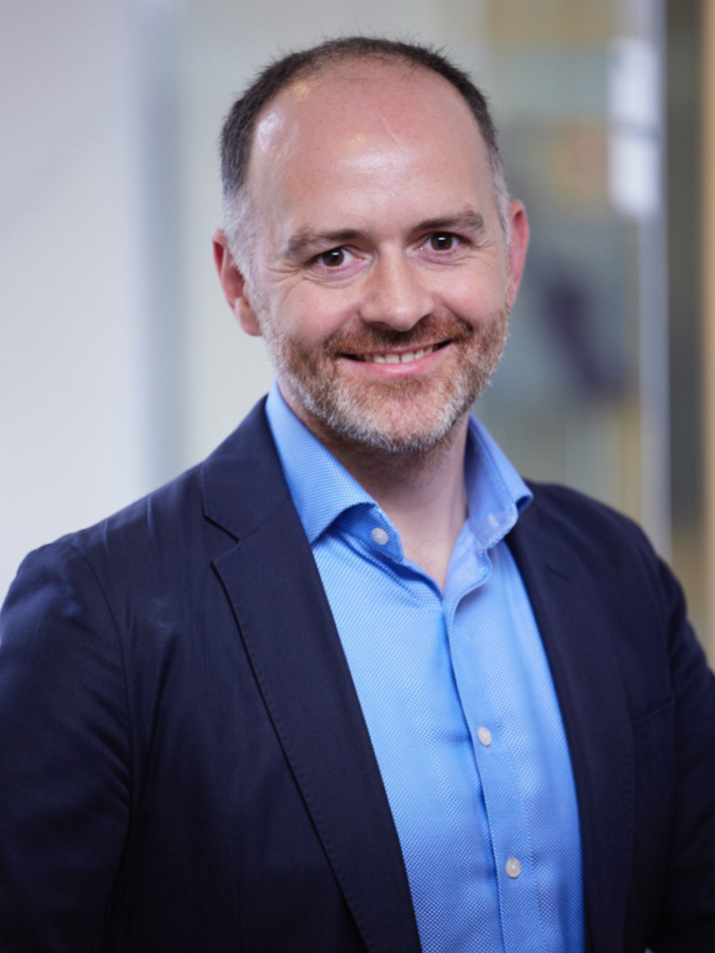
Colm Fay
TREASURER/SECRETARY, BOARD OF DIRECTORS
Colm Fay was born and raised in Ireland and immigrated to the US for graduate school. He is an alumnus of the Erb Institute for Global Sustainable Enterprise at the University of Michigan and has worked in international development and inclusive business for over 13 years. Colm is an independent consultant and works with non-profits and social enterprises on program design and planning, innovation, and learning strategy. He enjoys cooking, long hikes, camping, woodworking, and travel.
-

Dr. Lesli Hoey
MEMBER, BOARD OF DIRECTORS
Lesli Hoey was born in Bolivia. She is an associate of Urban and Regional Planning Program at the University of Michigan where she studies grassroots- and government-led efforts to intervene in the public health crisis, environmental degradation, and economic inequities rooted in today’s dominant food system. Focused on policy change, implementation and evaluation, she examines how innovative plans, policies and community visions translate into effective, wide-scaled, sustained action. Much of Dr. Hoey’s research has concentrated on Michigan since 2012 and Bolivia since 2007, places with contrasting contextual factors that affect the emergence and success of food systems transformations.

